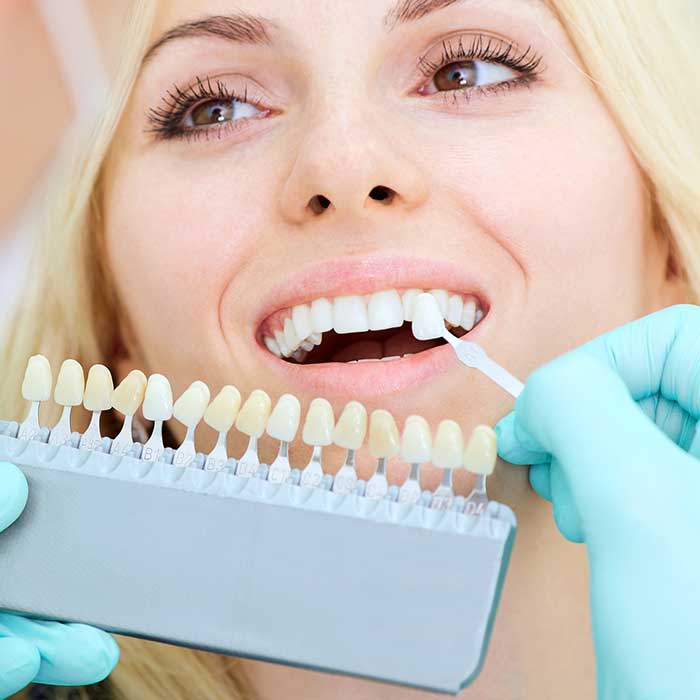Tooth bonding is a popular dental treatment to address minor blemishes, spacing and sometimes slight discoloration of the teeth. Our cosmetic dentist uses the finest materials to create seamless, beautiful, natural looking smiles. If you have questions about dental bonding in Randolph, NJ or are on the fence about the best route to go for minor tooth enhancements, schedule a consult with our team and we'll point you in the right direction.
How Can Bonding Help My Smile?
Dental bonding is great for addressing cosmetic concerns like:
Bonding is not as durable or strong as veneers and overtime will discolor. However, it is a great cost-effective option for small enhancements.
What is Cosmetic Bonding?
Dental bonding is a procedure in which a tooth-colored resin is applied to a tooth, hardens, and then is sculpted into the desired shape. Bonding can be used to improve the appearance of a tooth that is discolored, chipped, or misshapen. It can also be used to close gaps between teeth or to change the length or shape of teeth. The bonding material is matched to the color of the natural teeth so that it looks like a natural part of the smile. Bonding typically lasts for several years before it needs to be touched up or replaced. Although it is not as strong as some other dental materials, such as porcelain veneers, cosmetic tooth bonding is an affordable and effective way to improve the appearance of your smile.
Dental Bonding Process
Bonding is a relatively simple process, is usually done in one office visit and does not require anesthesia. First, we'll do a shade match with the rest of your teeth. We want to make sure the resin, bonding material, blends in seamlessly with the rest of your smile. Next, the tooth surface is roughened to help the bonding material adhere to the tooth. The bonding material is then applied to the tooth and molded into place. Once the material has hardened, it is then polished to match the same luster of the surrounding teeth.
Advantages of Dental of Bonding
- Quick treatment, often done in only one visit
- Less expensive than porcelain veneers
- Safe and protective for your teeth
- Improve smile and confidence
Disadvantages of Dental of Bonding
- Does not last as long as porcelain veneers
- Doesn't have the same reflective properties as porcelain veneers, veneers mimic real teeth best
- Less resistant to staining as veneers
- Easier to chip or damage

